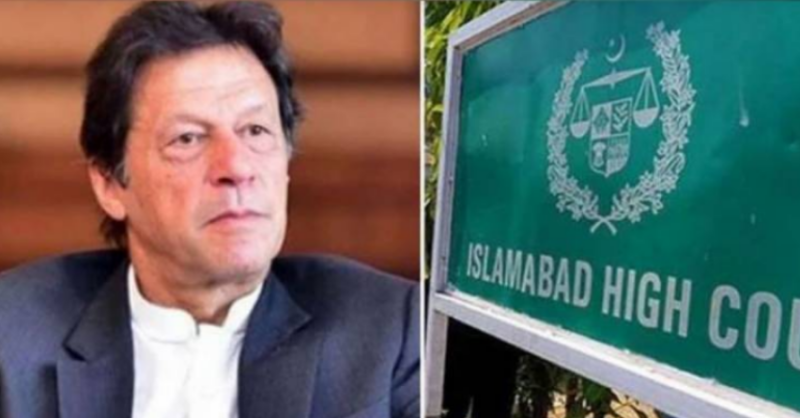Islamabad (Web Desk): The Islamabad High Court (IHC) on Wednesday granted bail to Pakistan Tehreek-e-Insaf (PTI) founder and former premier Imran Khan in connection with the new Toshakhana case.
Justice Miangul Hassan Aurangzeb approved Khan’s bail against the surety bonds of Rs 1 million each, with separate guarantors for each bond.
Following the development, the PTI founder is no longer a wanted in any other case under Islamabad’s jurisdiction.
The court also ordered Khan to appear before the trial court, stressing that his bail could be revoked if he fails to cooperate in the ongoing proceedings.
During the hearing, the Federal Investigation’s (FIA) prosecutor raised concerns about media coverage, claiming that reports had prematurely suggested that Khan’s bail would be granted.
Justice Aurangzeb advised the prosecutor to ignore such media speculation and reassured that the court’s decisions would be unaffected by external narratives.
The court also questioned how the jewellery set in question had been valued.
Barrister Salman Safdar, representing Khan, responded that the prosecution was responsible for clarifying the valuation of the items in court.
He pointed out that the receipts for the jewellery were issued in Bushra Bibi’s name, not Khan’s, and argued that the prosecution’s case relied on questionable testimonies, including from Sohaib Abbasi, who had been granted immunity and declared an approver in the case.
Abbasi had allegedly made claims of being threatened by Khan, but Safdar clarified that Abbasi had denied any direct interaction with either the PTI founder or his wife.
The court also asked whether any customs officers involved in the valuation of the jewellery had reported intimidation. The defence responded that no such claims had been made.
The prosecution argued that the Bulgari jewellery set was not properly deposited in the Toshakhana and that its undervaluation had caused harm to the state.
Justice Aurangzeb questioned how Khan personally benefited from the undervaluation, dismissing the prosecutor’s assumption that the former premier benefited from his wife’s possessions.
“My wife’s things are not mine,” the judge remarked, challenging the prosecutor’s logic.
Barrister Safdar defended Khan, asserting that all gifts were acquired according to the 2018 Toshakhana policy, and the valuation was carried out lawfully.
He explained that payments for the gifts had been made in line with the established policy, and there was no evidence of wrongdoing.
Justice Aurangzeb pointed out that the previous government had failed to disclose Toshakhana records, despite multiple court requests.
The prosecution also accused the defence of delaying tactics, while the FIA presented evidence that Abbasi had apologized for undervaluing the jewellery set, a statement that was later accepted by the NAB chairman.
The defence, however, criticized the speed with which the FIA filed its charges, claiming that important aspects of the investigation had been overlooked.
After approving the bail, the court also warned that the bail could be revoked if misused in the future.
Earlier on October 23, the IHC accepted the post-arrest bail plea of Bushra Bibi against Rs1 million surety bonds.
In its reference filed with the court, the National Accountability Bureau (NAB) accused Imran and his wife of retaining the jewellery set gifted to Ms Bibi by the Saudi royal family during their visit to the kingdom in May 2021.
NAB’s reference details that the set includes a ring, bracelet, necklace, and earrings.
The bureau claimed that the former first couple unlawfully kept these gifts, despite the official protocol that would have required them to be handed over to the Toshakhana (state gift depository).
According to the reference, Col Rehan Mohammad, the then-deputy military secretary to the prime minister, directed the Toshakhana section officer to assess the value of the jewellery on May 18, 2021.
The officer was informed that Khan intended to retain the gift, and it was officially recorded as such.
The reference also accused Khan and his wife of retaining a substantial number of gifts they received during his time in office. Out of 108 gifts from foreign leaders and dignitaries, the couple allegedly kept 58, with a total value assessed at over Rs142 million.
NAB asserted that the gifts were retained at an undervalued rate, in an attempt to circumvent regulations governing the retention of such items.


